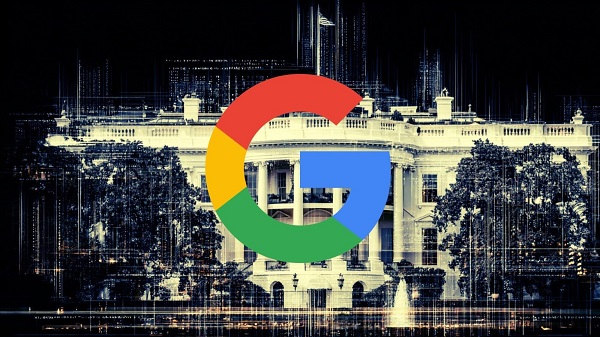UK Prime Minister Keir Starmer came into office promising competence and calm after years of alleged political chaos.
Critics argue that what counts as “offensive” now changes depending on the political mood, which means ordinary citizens find themselves guessing at what might trigger a knock on the door.
The pattern is clear: expand surveillance, narrow dissent, and then assure the public it is all in the name of safety and order.
Once every adult is forced to plug into a centralized identity wallet to work, rent, or access services, the state’s ability to monitor and sanction becomes unprecedented.
Starmer’s Labour government is dusting off one of its oldest obsessions: the dream of tagging every citizen like a parcel at the post office.
The latest revival comes in the form of a proposal to create mandatory digital ID cards, already nicknamed the “Brit Card,” for every working adult in the country.
The sales pitch sounds noble enough: crack down on illegal work, cut fraud, plug loopholes. The real effect would be to make ordinary life a permanent identity check.
Officials want job applications, rental agreements, and other basic transactions to be filtered through a government database, accessed through an app.
This, the people are told, will finally stop the shadow economy of dodgy employers. If that logic sounds familiar, it is because it is the same rationale Labour used for its last ID card scheme in the 2000s, a project that ended up in the political landfill in 2010 after enough voters realized what was happening.
“Digital ID is an enormous opportunity for the UK. It will make it tougher to work illegally in this country, making our borders more secure,” Starmer said in his announcement. “And it will also offer ordinary citizens countless benefits, like being able to prove your identity to access key services swiftly – rather than hunting around for an old utility bill.”
Campaigners and data rights groups are not buying the rebrand.
For Liberty’s Gracie Bradley cut straight to the point: the new version “is likely to be even more intrusive, insecure and discriminatory” than the one the country already threw out a decade ago.
That does not bode well for a government trying to convince citizens this time will be different.
Rebecca Vincent of Big Brother Watch spelled out where this all leads: “While Downing Street is scrambling to be seen as doing something about illegal immigration, we are sleepwalking into a dystopian nightmare where the entire population will be forced through myriad digital checkpoints to go about our everyday lives.”
Her warning does not require much imagination. Britain has a spotty track record on protecting sensitive data.
A poll commissioned by Big Brother Watch found that nearly two-thirds of the public already think the government cannot be trusted to protect their data. That is before any giant centralized ID system is rolled out.
Privacy advocates see this as a recipe for disaster, arguing that hackers and snooping officials alike will treat the system as a buffet of personal information.
Former Cabinet Minister David Davis, one of the longest-serving critics of ID schemes, described the risks as existential. “The systems involved are profoundly dangerous to the privacy and fundamental freedoms of the British people,” he said, noting the government has not explained how or if it would compensate citizens after the inevitable breach.
Silkie Carlo, the director of Big Brother Watch, issued a blunt forecast of where the “Brit Card” could lead.
She warned it could extend across public services, “creating a domestic mass surveillance infrastructure that will likely sprawl from citizenship to benefits, tax, health, possibly even internet data and more.”
In other words, once the pipes are laid, the water does not stop at employment checks.
Labour, of course, has been here before. The last time it rolled out ID cards, in 2009, the experiment barely survived a year before being junked by the incoming Conservative-led coalition as an “erosion of civil liberties.”
Labour is leaning heavily on polling that allegedly suggests up to 80 percent of the public backs digital right-to-work credentials.
Starmer himself recently adopted that framing. Earlier this month, he claimed digital IDs could “play an important part” in tackling black market employment.
He is pushing the case again at the Global Progress Action Summit in London, noting that “we all carry a lot more digital ID now than we did 20 years ago.”
What complicates the sales pitch is Labour’s own history of skepticism. Both Keir Starmer and Foreign Secretary Yvette Cooper previously raised concerns about ID systems and their potential for government overreach.
That past caution has not stopped the new Home Secretary, Shabana Mahmood, from becoming one of the loudest champions of the plan. She recently declared the system “essential” for enforcing migration and employment laws.
Labour-aligned think tanks are also providing cover. Labour Together released a report describing digital ID as a “new piece of civic infrastructure,” with the potential to become a routine part of life.
***
Tony Blair has reemerged as a central architect of Britain’s dystopian digital future.
With Keir Starmer now in office, Blair’s vision is no longer an abstract policy paper. It is edging into reality with a new host.
For Blair, digital ID is not about convenience. It is about rewriting how government functions and can be what he calls a “weapon against populism.”
He has argued that a leaner, cheaper, more automated state is possible if citizens are willing to give up parts of their privacy. “My view is that people are actually prepared to trade quite a lot,” he once said, suggesting that resistance will dissolve once faster services are dangled in front of the public.
This project is not limited to streamlining bureaucracy. His version of efficiency is a frictionless state that also monitors, verifies, and restricts in ways that would have been inconceivable before the digital era.
With Starmer’s government now developing a digital ID wallet and considering a national rollout, Blair’s agenda is closer to official policy than ever. Marketed as modernization, the plan points toward a permanent restructuring of the relationship between citizen and state, locking personal identity into a centralized system that future governments will be able to expand at will.

















